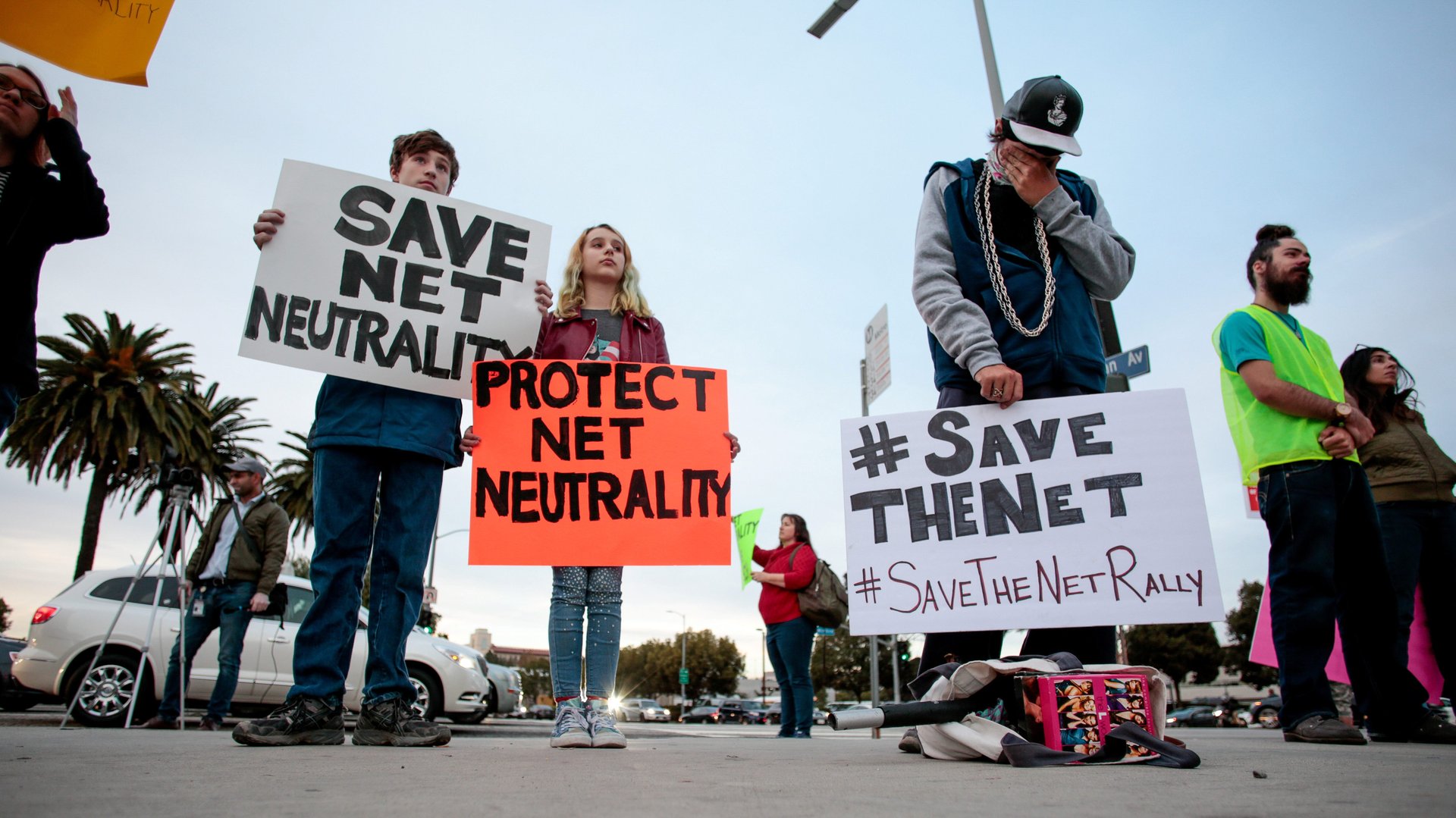India is upholding an open internet as the US moves to dismantle net neutrality
Even as the US telecom regulator plans to dismantle net neutrality rules, its Indian counterpart has reaffirmed its intent to keep the internet open in the sub-continent.


Even as the US telecom regulator plans to dismantle net neutrality rules, its Indian counterpart has reaffirmed its intent to keep the internet open in the sub-continent.
On Nov. 28, the Telecom Regulatory Authority of India (TRAI) released its recommendations on net neutrality that make it mandatory for telecom companies to treat the internet—declared a basic human right by the United Nations—as a public utility and not a luxury. Telecom companies cannot control the content people access or the speed at which all online traffic flows, TRAI said, nor can they create “fast lanes” with priority content delivery for higher-paying customers. Violators may be fined up to Rs50 lakh ($77,621).
There are, however, some exceptions, including unforeseeable transitory congestion, specific security threats, or prioritisation for stipulated emergency services.
“The overarching thought that we had was for a country like India, internet is an extremely important platform. (The) internet today is a great platform for innovation, startups, banking, government applications such as health, telemedicine, education, and agriculture. It is going to become further important in view of the Internet of Things and a huge number of applications,” TRAI chairman RS Sharma told the Mint newspaper. “Therefore, it is important that this platform be kept open and free and not cannibalised.”
Last February, TRAI shut out Facebook’s Free Basics program after a prolonged debate, ending the social media giant’s efforts to offer free access to a limited web in India. “While formulating the regulations, the authority has largely been guided by the principles of net neutrality seeking to ensure that consumers get unhindered and non-discriminatory access to the internet,” TRAI had said.
The reaffirmation of net neutrality will be a shot in the arm for the country’s digital economy, India’s IT industry lobby NASSCOM said in a statement. “It would ensure a level playing field for IT and OTT (over-the-top) services providers to innovate and customise in India and provide a constantly expanding range of new services relevant to every individual,” it added.
Innovation-first
The Federal Communications Commission (FCC), an independent agency of the US government that oversees all radio, television, wire, satellite, and cable communication, recently announced a decision to repeal net neutrality rules, giving internet service providers (ISPs) the freedom to experiment with new pricing models and content prioritisation.
As the regulator foregoes control, FCC Chairman Ajit Pai advocated that industry players still maintain transparency ”so that consumers can buy the service plan that’s best for them and entrepreneurs and other small businesses can have the technical information they need to innovate.”
FCC’s decision stems from the fear that heavy regulations will slow down investments to expand broadband. But so far, there’s no real proof of such a trend, and a slew of internet companies, from Airbnb to Reddit to Twitter, are fighting for a rollback. Critics argue that without net neutrality, the US could have a Portugal-sized mess on its hands where market leaders have disproportionate power, which ends up costing consumers more money and freezing new entrants. The result? Unequal internet access for the rich and the poor.
India may have achieved a middle-ground of sorts to keep healthy competition alive. For instance, telcos like Reliance Jio and Bharti Airtel that run their own content platforms for movies, music, and more, which are solely available own their networks, can exercise differential pricing. This will allow them to “create (a) content ecosystem…to drive traction within their subscriber base,” financial services company Edelweiss said in a research note.